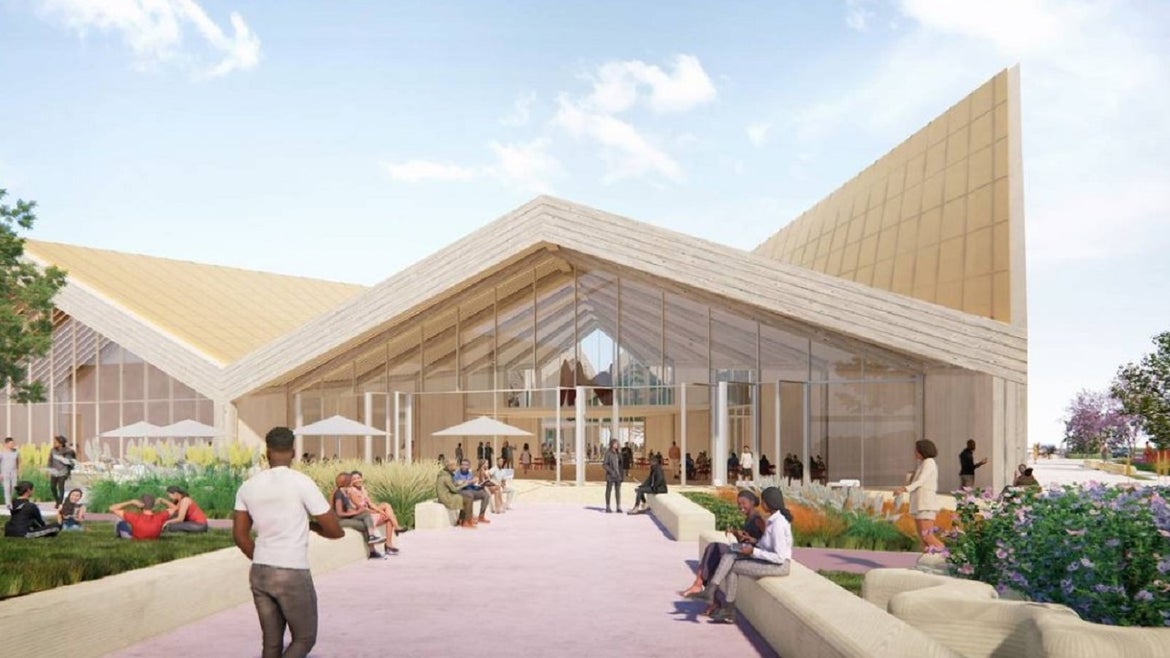The massive reconstruction of the National Juneteenth Museum will be the "epicenter" of Black freedom, sponsors say.
The National Juneteenth Museum in Fort Worth will be torn down and resurrected as a massive complex dedicated to preserving and celebrating the freedom and equality of Black Americans, its sponsors said.
Construction of the 50,000-square-foot building is expected to begin next year, in the city's historic Southside neighborhood.
The museum will house exhibits, public meetings and educational events to honor the long and troubled path to liberation for Black Americans and is part of the legacy of 95-year-old activist Opal Lee, known as the "grandmother" of Juneteenth.
“Seeing the national museum moving forward is a dream fulfilled,” she said.
"I’ve had a little Juneteenth Museum in that very spot for almost 20 years, and to see it become a central place for discussion, collaboration and learning seems to be the providential next step — from my walking campaign to Washington, D.C., the petition, and having Juneteenth declared a federal holiday.
"It’s mind-boggling, but I’m glad to see it all come to pass,” she said.
Dione Sims, Lee's granddaughter, recently took CBS News on a tour of the current Texas facility.
"This is the current museum. It has seen better days, for sure," Sims said. Her grandmother was the driving force behind getting June 19 designated a federal holiday.
The holiday commemorates the date when slaves in Galveston, Texas, were told of their freedom — two and a half years after the Emancipation Proclamation was announced by President Abraham Lincoln in 1863.
"Our vision and our mission is to help the nation and the world find themselves in the Juneteenth story," Sims said.
"So you've got Quakers who risked their families, their position to help folks escape to the North. You had abolitionists — William Lloyd Garrison and Frederick Douglass — that worked together," she said.
"There were a multitude of ethnicities that wanted to help free the enslaved. So we're trying to let everybody see that Juneteenth isn't just an African American story. It's a story about freedom."






